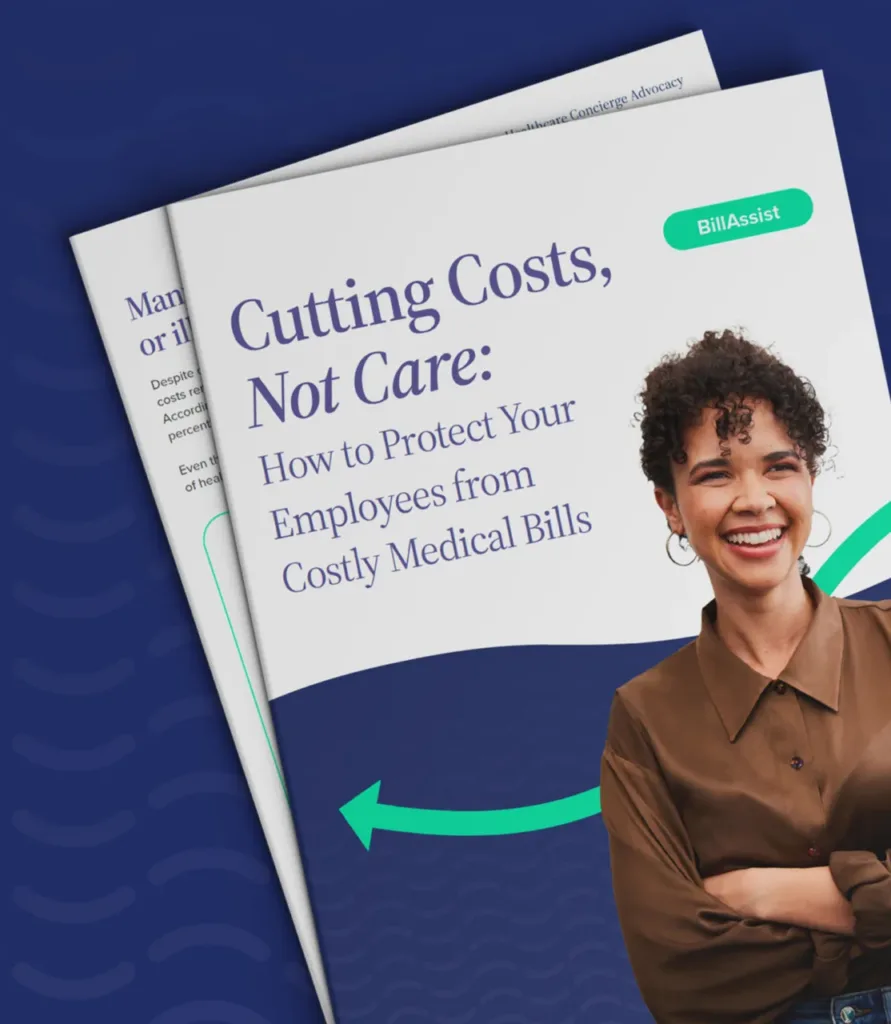See this article by Emry president Derek Fitteron as it originally appeared in HR Excellence Magazine.
A thoughtfully designed healthcare package is a significant milestone for HR leaders. Yet, the real test comes after the rollout. The introduction of new health benefits can send a ripple of confusion through an organization, even when the new plans reflect the needs of those who will use them. Employees, faced with a maze of new information and complex healthcare terms, often look to HR for guidance.
When HR anticipates potential disruptions from health plan changes, they can proactively prepare to address common concerns. This foresight is essential, as feeling supported in healthcare matters can make a world of difference to an employee. It’s not just about handling the queries—it’s about enhancing the relationship between staff and the company, fostering a sense of security and belonging.
In essence, the role of HR in easing employees through the transition of new health benefits cannot be overstated. Done right, it reinforces the company’s reputation as a caring employer and can be a deciding factor in retaining a happy, engaged workforce. Keep reading to learn how you can proactively mitigate disruption by understanding the top five questions employees have when new benefits roll out.
1. Is this covered?
This is arguably the most pressing question HR departments face, particularly during the annual health plan transition prompted by company renewal cycles. Clarity on coverage is vital—without it, employees may inadvertently assume that certain treatments or services are covered when, in fact, they may be subject to limitations, or not covered at all. The fallout from such assumptions can be severe, leaving employees blindsided by substantial bills for treatments or from doctors they presumed were in-network. HR professionals must be equipped to deliver comprehensive details on what the new plans include and exclude. It’s about safeguarding employees from the distress and financial strain of unexpected healthcare costs by ensuring they have a clear, full picture of their benefits landscape.
2. Why is my medication no longer covered/my doctor no longer in-network?
Insurance carriers regularly update their formularies—the official list of medications they cover—which can result in an unsettling discovery for employees when they go to fill their prescriptions. Employees might find themselves facing the need to switch medications, navigate the complexities of prior authorizations, or challenge a denial of coverage—each scenario demanding clear guidance and support. Alternatively, a long-seen specialist might move out of network, prompting a search for a new provider or the negotiation of continued care under the new plan terms.
HR’s role extends beyond simply responding to these concerns. It involves proactively educating employees on potential formulary changes and what steps to take should their medication or doctor’s network status change. By anticipating these disruptions and preparing clear, informative responses, HR can help employees navigate these transitions smoothly, mitigating confusion and anxiety associated with such changes.
3. Am I being billed correctly?
Billing errors are surprisingly common, especially in preventive healthcare settings. These are usually a result of human error: providers simply entering the wrong code or neglecting to code a visit as routine preventive care, for example. Improper coding can mean that an employee gets a bill for a visit that should have been covered by insurance.
For many employees, the next step is a visit to their employer’s HR department to sort out the billing question. This adds to the already considerable workload of HR professionals, who find themselves navigating complex healthcare benefits issues, liaising with insurance companies, and coordinating with healthcare providers to pinpoint and correct any discrepancies.
Unchecked billing errors carry a significant financial toll, potentially escalating claim expenses and exerting pressure on a company’s healthcare budget. This is especially detrimental for self-funded organizations, where such inaccuracies directly affect the bottom line. For the workforce, the impact is more than financial. Billing mistakes can lead to considerable stress, complicating their personal and professional lives. The time and effort required to resolve these issues can detract from an employee’s well-being and productivity in the workplace, highlighting the crucial role of HR in ensuring that billing processes are as seamless and error-free as possible.
4. Will the changes in the company’s health plan affect ongoing care?
If you have employees who are undergoing treatment for chronic illnesses (such as diabetes), or continuing prescriptions (such as birth control), make sure their care team is still in-network under the new plan. If it isn’t, let the employee know they need to contact the new plan administrator immediately to request authorization for ongoing treatment.
5. What does this word mean?
Health insurance documentation is often riddled with industry-specific terminology that can perplex the average consumer. HR departments frequently field questions regarding an array of these terms. While concepts like “deductible” and “premium” are fairly straightforward, there are several terms that might stump employees:
- Co-pay is the set amount that the employee pays when they go to their healthcare provider for a particular service. It’s usually paid at check-in, but sometimes arrives later as part of a bill in the mail.
- Co-insurance is a bit of a misnomer; this is the percentage of the cost of care that insurance doesn’t cover. In other words, it’s the amount the employee pays.
- Out-of-pocket maximum, on the other hand, is exactly what it says it is: The most a person would pay in a year before the plan covers 100%.
Choosing the right plan is critical, and misunderstandings around the costs associated with these terms can lead to significant frustration. If employees misinterpret how their co-pays, co-insurance, or out-of-pocket maximums work, they may select a plan that doesn’t align with their healthcare needs or financial situation, potentially leading to unexpected expenses. It’s essential for HR to guide employees to make informed decisions that align with their healthcare needs and budgetary constraints. This clarity not only helps in selecting the most appropriate plan but also prevents frustration and financial strain down the line.
Getting outside help
In the complicated realm of health insurance, HR departments—particularly in smaller companies—can find themselves swamped by the sheer volume of details and decisions. At times, enlisting external expertise is not just helpful, it’s strategic. A healthcare benefit navigator can streamline this complexity, serving as a dedicated intermediary between employees and their insurance plans. These navigators are adept at clarifying benefits, assisting with paperwork and decoding industry jargon, allowing for more transparent communication. Outside navigators also reduce the risk of HIPAA violations that result when internal HR employees become aware of the private health Information of fellow employees.
Moreover, benefit navigators are skilled in advocating for reduced out-of-pocket costs and spotting potential billing inaccuracies—proactive steps that can lead to substantial savings for both employee and employer. By absorbing the brunt of inquiries, navigators alleviate the pressure on HR departments, enabling team members to redirect their focus to other critical responsibilities.
While it would be ideal for employees to fully comprehend their benefits, the reality is that this kind of understanding takes time and time is a scarce commodity. Navigators fill this gap, ensuring employees are supported and informed without having to delve into the complexities of their health plan details themselves. This not only enhances the overall employee experience but also contributes to a more efficient and focused HR operation.



